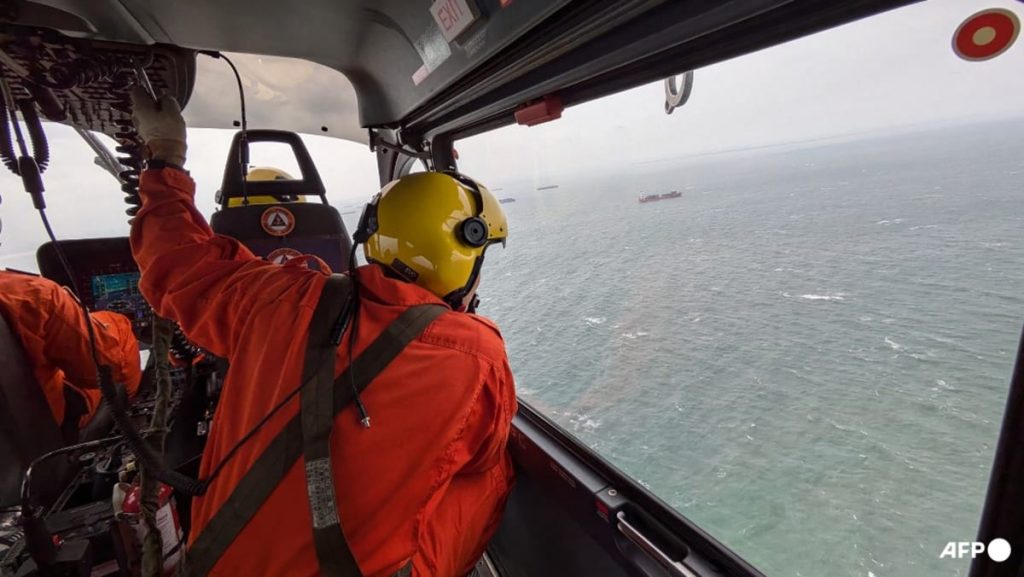A vessel sank nearly 7km from its origin in the port of Limay west of Manila while attempting to return to port after encountering bad weather. The incident occurred as heavy rains caused by Typhoon Gaemi and the seasonal monsoon lashed Manila and surrounding regions. The state weather service reported that the monsoon had weakened by late Friday, providing authorities with a relative calm at sea to recover the cargo. The coast guard estimated that the extraction process would take at least seven days as efforts were underway to clean up and contain the impact of the spill.
The Philippines has faced challenges in containing serious oil spills in the past, with incidents involving tankers causing extensive damage to coastal areas. It took several months to clean up after a tanker carrying 800,000 liters of industrial fuel oil sank off the central island of Mindoro, contaminating waters and beaches and devastating the local fishing and tourism industries. Another tanker sank off the central island of Guimaras in 2006, releasing tens of thousands of gallons of oil that destroyed a marine reserve, decimated fishing grounds, and covered coastlines in black sludge. These incidents have highlighted the environmental and economic impacts of oil spills in the region.
Efforts to recover the cargo from the sunken vessel off the coast of Manila are expected to take several days as authorities work to contain and clean up the spill. The Philippine coast guard and other agencies are coordinating efforts to mitigate the impact of the spill on the surrounding marine environment and coastal communities. With the monsoon subsiding, authorities have a window of opportunity to address the situation and prevent further damage to the region’s ecosystems and industries. The incident serves as a reminder of the challenges posed by maritime disasters and the importance of effective response and cleanup efforts to minimize the long-term consequences.
The recent incident off the coast of Manila underscores the risks and consequences of maritime accidents, particularly in regions prone to severe weather conditions. The combination of heavy rains fueled by Typhoon Gaemi and the seasonal monsoon created challenging conditions for vessels navigating the waters near Manila. The sinking of the vessel highlights the dangers faced by crews and the potential for environmental damage from oil spills in the event of a maritime disaster. Authorities have emphasized the importance of preparedness and response measures to address such incidents and prevent further harm to marine ecosystems and coastal communities.
The Philippines’ history of struggling to contain and clean up serious oil spills underscores the need for improved prevention and response mechanisms to address maritime accidents effectively. The incidents involving tankers in the past have had devastating impacts on local environments, economies, and communities, underscoring the importance of mindful maritime practices and regulations to avoid future disasters. The recent incident off the coast of Manila serves as a reminder of the ongoing risks posed by maritime transportation and the importance of proactive measures to prevent and mitigate the impact of potential spills on coastal regions.
In conclusion, the sinking of a vessel off the coast of Manila highlights the challenges and consequences of maritime accidents, especially in regions vulnerable to severe weather conditions. The incident underscores the need for effective response and cleanup efforts to address oil spills and prevent further harm to marine ecosystems and coastal communities. Authorities are working to recover the cargo and contain the spill, utilizing a window of opportunity provided by the calming monsoon conditions. The Philippines’ history of struggling with oil spills emphasizes the importance of proactive measures to prevent such incidents and minimize their impact on local environments and economies. The recent incident serves as a reminder of the ongoing risks posed by maritime transportation and the necessity for comprehensive regulations and preparedness strategies to address potential disasters effectively.


